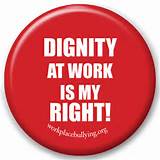By: Robert Avsec, Executive Fire Officer
The short answer is: Human capital.
I received the following message from a colleague who was a fire chief until recently. A real bright and shining  star in the fire service leadership world, IMHO. I had sent this person information about a course development project for which I was seeking developers to work on. This was their response (Almost a full week after I sent my e-mail to them. Obviously, not an “off-the-cuff” response, right?):
star in the fire service leadership world, IMHO. I had sent this person information about a course development project for which I was seeking developers to work on. This was their response (Almost a full week after I sent my e-mail to them. Obviously, not an “off-the-cuff” response, right?):
Robert,
I haven’t even been able to bring myself to look at this. I am that scarred and upset with the fire service. I have chosen to separate myself from the profession until I can heal.
I’ve chosen to pursue careers outside of fire as I cannot be a part of the profession fraught with bullying. At least in [state name deleted] it is a widespread issue and I don’t have the option to move with our custody arrangement.
I’ve removed most fire people from my social media. The only ones I’ve kept are those who I truly feel are friends, like you.
Nor were this person’s emotions the result of a recent action. I first became aware of this person leaving the fire service back at the end of July 2019.
Bullying is not confined to the fire station
I know enough about this person’s professional “hell” to know that the bullying and harassment that they  suffered was at the hands of people in both their fire department’s upper management and that of the local government.
suffered was at the hands of people in both their fire department’s upper management and that of the local government.
I also know that this person came from another department to become that department’s next fire chief. And, that probably means that there was:
- A recruitment process for the vacancy;
- A process to evaluate all the applicants to determine how many qualified candidates there were for the position;
- An interview process;
- Background checks and other vetting processes; and
- Tendering of the offer.
So, after all that, how did they get the wrong person for the job?
What? They didn’t get the wrong person for the job? How can that be? Check out The Sum of Zero Tolerance and get back to me on those questions, OK?
Human Capital
According to Sean Ross, “Human capital is a loose term that refers to knowledge, experience and skills of an employee. … It states that companies [employers] have an incentive to seek productive human capital and to add to the human capital of their existing employees.” (For more, see the rest of Mr. Ross’ article: What is human capital and how is it used?)
There must not have been much incentive for the local government in this situation to protect its investment in human capital. In addition to the costs associated with those bulleted items I listed above, this person served as the fire chief for almost five years!
During that time, I’m sure this person was provided with education and training opportunities to further their professional development, because that’s what any progressive organization does to enhance its human capital. And they were getting a paycheck!
professional development, because that’s what any progressive organization does to enhance its human capital. And they were getting a paycheck!
So, how does a local government justify such a gross mismanagement of it fiduciary responsibilities? OK, so I used a fancy word for “spending taxpayer monies in a way that justifies the public’s trust in providing you the money in the first place.” That’s what’s what this is–gross mismanagement of their fiduciary responsibilities–in addition to the bullying and harassment.
Wanna know the price of bullying?
Read More
A few things every employee should know about sexual harassment
 Fire & EMS Leader Pro The job of old firefighters is to teach young firefighters how to become old firefighters!
Fire & EMS Leader Pro The job of old firefighters is to teach young firefighters how to become old firefighters!